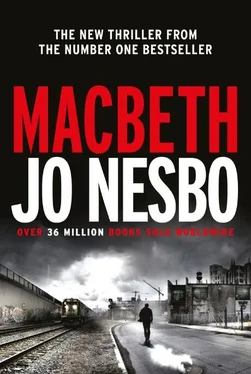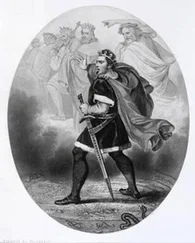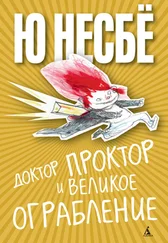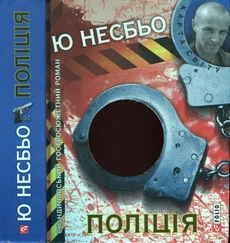Jack coughed. ‘Anything else, ma’am?’
‘No, thanks, Jack.’ Lady cheerfully waved him away.
Macbeth heard the hollow bass from the ground floor as Jack opened the door to the corridor and the wailing siren of an ambulance that followed after he closed it.
‘Tourtell’s making plans to stop us,’ Lady said. ‘The assassination will have to be soon.’
‘What about Hecate? If this snake is Tourtell and Hecate, then Tourtell is the tail and Hecate the head. And cutting off the tail only makes it more dangerous. We have to tackle the head first!’
‘No.’
‘No? He says he’ll kill us if we don’t obey. Do you want to be his trained dog?’
‘Sit still and listen to me now, darling. You heard Jack. Arrange an armistice with one party and attack the other. This is not the moment to challenge Hecate. What’s more, I’m not sure that Hecate and Tourtell actually work together. If so, Hecate would have said we should stay away from Tourtell and the mayoral office. But he hasn’t, not even after the speculation that you would stand. As long as Hecate thinks we’ve been taught a lesson and we’re now his obedient dogs he’ll only applaud us — and indirectly himself — taking political control of the town. Do you understand? We take care of one enemy now and get what we want. Then we decide what we have to do about Hecate afterwards.’
Macbeth ran his hand up her leg, past her knee. She fell quiet, closed her eyes, and he listened to her breathing. The breathing that with non-verbal commands determined what his hand should and shouldn’t do.
Through the afternoon and night the rain continued to wash the town that was never clean. Hammered down on the roof of the Grand Hotel, where Fleance, Duff, Malcolm and Caithness had agreed they would stay until it was over. It was two o’clock in the morning when Caithness was woken by knocking on the door to her room. At once she knew who it was.
It wasn’t the number of knocks, the interval between them or the force of them. It was the style. He knocked with a flat hand. And she knew the hand, every crease and cranny of it.
She opened the door a fraction.
Rain dripped from Duff’s clothes and hair, his teeth were chattering and his face was so pale the scar was barely visible. ‘Sorry, but I need a really hot shower.’
‘Haven’t you...?’
‘Fleance and I share a room with bunk beds and a sink.’
She opened the door a bit more, and he slipped in.
‘Where have you been?’ she asked.
‘To the cemetery,’ he said from inside the bathroom.
‘In the middle of the night?’
‘Not so many people out and about.’ She heard the water being switched on. She stood close to the bathroom door. ‘Duff?’
‘Yes.’
‘I just wanted to say I’m sorry.’
‘What?’ he shouted.
She cleared her throat and raised her voice. ‘About your family.’
She listened to the beating of the water, which muffled her words, and stared into the steam that hid him from her.
When Duff came out again in the dressing gown that hung in the bathroom and with his wet clothes over one arm Caithness was dressed and lying on the broad bed. He pulled a soggy packet of cigarettes from the pocket of his wet trousers. She nodded, and he lay beside her. Caithness rested her head on his arm and looked up at the domed yellow glass ceiling light. The bowl was dotted with dead insects.
‘That’s what happens when you get too close to the light,’ he said. So he still had the ability to guess what she was thinking.
‘Icarus,’ she said.
‘Macbeth,’ he said and lit a cigarette.
‘I didn’t know you’d started smoking again,’ she said.
‘Well, it’s a little strange. I’ve actually never liked this shit.’ He grimaced and blew a big fat smoke ring up at the ceiling.
She sniggered. ‘So why did you start?’
‘Have I never told you?’
‘There’s a lot you’ve never told me.’
He coughed and passed her the cigarette. ‘Because I wanted to be like Macbeth.’
‘I’d have thought he wanted to be like you.’
‘He looked so damned good. And was so... free. In harmony with himself and happy, so happy in his own skin. I never was.’
‘But you had intellect.’ She inhaled and passed the cigarette back. ‘And the ability to persuade people you were right.’
‘People don’t like to realise they’re wrong. And I didn’t have the ability to persuade them to like me. He did.’
‘Cheap charm, Duff. Look who he is now. He duped everyone.’
‘No.’ Duff shook his head. ‘No, Macbeth didn’t dupe anyone. He was straight-talking and upfront. No saint, but no ulterior motives — what you saw was what you got. Perhaps he didn’t impress everyone with his wit or originality when he spoke, but you trusted every word. And rightly so.’
‘Trust? He’s an unfeeling murderer, Duff.’
‘You’re wrong. Macbeth is full of feelings. That’s why he can’t hurt a fly. Or to be accurate, especially not a fly. An aggressive wasp, yes, but a defenceless fly? Never, regardless of how annoying it is.’
‘How can you defend him, Duff? You who have lost—’
‘I’m not defending him. Of course he’s a murderer. All I’m saying is he can’t kill anyone who can’t defend himself. It’s happened only once. And he did it to save me.’
‘Oh yes?’ she said. ‘Are you going to tell me about it?’
He sucked hard on the cigarette. ‘It was when he killed the Norse Rider on the country road out by Forres. A young guy who’d just seen me kill his comrade, who I’d mistaken for Sweno.’
‘So they didn’t pull guns on you?’
Duff shook his head.
‘But then Macbeth’s no better than you,’ Caithness said.
‘Yes, he was. I killed for my own sake. He did it for someone else.’
‘Because that’s what we do in the police. We take care of each other.’
‘No, because he thought he owed it to me.’
Caithness sat up on her elbows. ‘Owed it to you?’
Duff held his cigarette up to the ceiling, pinched one eye shut and aimed above the glow with the other. ‘When Grandad died and I ended up in the orphanage, I was almost too old — I was fourteen. Macbeth and I were the same age, but he’d been there since he was five. Macbeth and I shared a room and became friends straight away. In those days Macbeth stammered. And especially when Saturday night approached, which was when he disappeared from the room in the middle of the night and returned an hour later. He would never tell me where he’d been; it was only when I jokingly threatened to report him to the home’s feared director, Lorreal, that he said he doubted that would do much good.’ Duff pulled hard on the cigarette. ‘Because that was where he’d been.’
‘You mean... the director—’
‘—had been abusing Macbeth for as long as he could remember. I couldn’t believe my ears. Lorreal had done things to him... you can’t imagine anyone would do to another person or find any enjoyment in. The one time Macbeth had stood up against him Lorreal had half-killed him and kept him locked up for two weeks in the so-called correction room in the cellar, a genuine cell. I was so furious I cried. Because I knew every word was true. Macbeth never lies. So I said we had to kill Lorreal. I would help him. And Macbeth agreed.’
‘You planned to kill him?’
‘No,’ Duff said, passing her the cigarette. ‘We didn’t plan so much. We just killed him.’
‘You...’
‘We went to his room one Thursday. Checked at the door that Lorreal was snoring. Went in. Macbeth knew the room inside out. I kept watch inside the door while Macbeth went to the bed and raised a knife. But time passed, and when my eyes had got used to the darkness I saw he was standing there as rigid as a pillar of salt. Then he crumpled and came over to me, whispering that he c-c-couldn’t do it. So I took the knife, went over to Lorreal and thrust it hard into his snoring mouth. Lorreal twitched one more time, then he stopped snoring. There wasn’t much blood. We left straight after.’
Читать дальше












